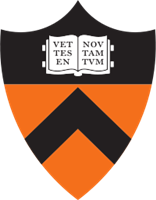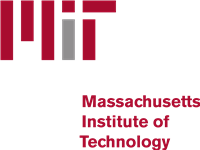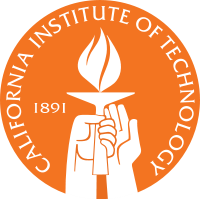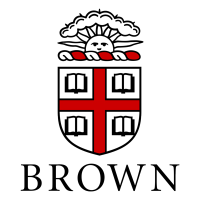What do they do?
Conduct research into physical phenomena, develop theories on the basis of observation and experiments, and devise methods to apply physical laws and theories.
Also known as:
Biophysics Scientist, Health Physicist, Medical Physicist, Physicist, Research Consultant, Research Physicist, Research Scientist, Scientist
-
10.5%
Change
Ranks #16 in job growth rate30Job Openings
Ranks #21 in net job growth
-
Princeton University
Princeton, NJ
-
Massachusetts Institute of Technology
Cambridge, MA
-
California Institute of Technology
Pasadena, CA
-
Yale University
New Haven, CT
-
Brown University
Providence, RI
Looking for colleges that offer a specific major? Use the College Match Tool to find your best-matched schools and discover your estimated Net Price!
- Doctorate or Professional Degree (54%)
- Master's degree (22%)
- Bachelor's degree (23%)
- Associate's degree (<1%)
- Some college, no degree (<1%)
- High school diploma equivalent (<1%)
- Less than high school diploma (<1%)
Most Popular Majors that prepare Physicists
-
#1
-
Degrees Granted
11,746
-
Female Students
2,861
-
Male Students
8,885
-
Median Starting Salary
$55,100
-
-
#2
-
Degrees Granted
1,033
-
Female Students
195
-
Male Students
838
-
Median Starting Salary
$64,763
-
-
#3
-
Degrees Granted
479
-
Female Students
147
-
Male Students
332
-
Median Starting Salary
$55,100
-
-
#4
-
Degrees Granted
409
-
Female Students
175
-
Male Students
234
-
Median Starting Salary
$51,867
-
-
#5
-
Degrees Granted
237
-
Female Students
95
-
Male Students
142
-
Median Starting Salary
$38,300
-
People in this career often have these skills:
- Science - Using scientific rules and methods to solve problems.
- Reading Comprehension - Understanding written sentences and paragraphs in work-related documents.
- Mathematics - Using mathematics to solve problems.
- Speaking - Talking to others to convey information effectively.
- Critical Thinking - Using logic and reasoning to identify the strengths and weaknesses of alternative solutions, conclusions, or approaches to problems.
- Active Listening - Giving full attention to what other people are saying, taking time to understand the points being made, asking questions as appropriate, and not interrupting at inappropriate times.
- Writing - Communicating effectively in writing as appropriate for the needs of the audience.
- Active Learning - Understanding the implications of new information for both current and future problem-solving and decision-making.
- Learning Strategies - Selecting and using training/instructional methods and procedures appropriate for the situation when learning or teaching new things.
- Complex Problem Solving - Identifying complex problems and reviewing related information to develop and evaluate options and implement solutions.
- Judgment and Decision Making - Considering the relative costs and benefits of potential actions to choose the most appropriate one.
- Instructing - Teaching others how to do something.
- Programming - Writing computer programs for various purposes.
- Systems Analysis - Determining how a system should work and how changes in conditions, operations, and the environment will affect outcomes.
- Systems Evaluation - Identifying measures or indicators of system performance and the actions needed to improve or correct performance, relative to the goals of the system.
People in this career often know a lot about:
- Physics - Knowledge and prediction of physical principles, laws, their interrelationships, and applications to understanding fluid, material, and atmospheric dynamics, and mechanical, electrical, atomic and sub-atomic structures and processes.
- Mathematics - Knowledge of arithmetic, algebra, geometry, calculus, statistics, and their applications.
- Engineering and Technology - Knowledge of the practical application of engineering science and technology. This includes applying principles, techniques, procedures, and equipment to the design and production of various goods and services.
- Computers and Electronics - Knowledge of circuit boards, processors, chips, electronic equipment, and computer hardware and software, including applications and programming.
- English Language - Knowledge of the structure and content of the English language including the meaning and spelling of words, rules of composition, and grammar.
- Education and Training - Knowledge of principles and methods for curriculum and training design, teaching and instruction for individuals and groups, and the measurement of training effects.
People in this career often have talent in:
- Mathematical Reasoning - The ability to choose the right mathematical methods or formulas to solve a problem.
- Written Comprehension - The ability to read and understand information and ideas presented in writing.
- Number Facility - The ability to add, subtract, multiply, or divide quickly and correctly.
- Oral Comprehension - The ability to listen to and understand information and ideas presented through spoken words and sentences.
- Oral Expression - The ability to communicate information and ideas in speaking so others will understand.
- Fluency of Ideas - The ability to come up with a number of ideas about a topic (the number of ideas is important, not their quality, correctness, or creativity).
- Originality - The ability to come up with unusual or clever ideas about a given topic or situation, or to develop creative ways to solve a problem.
- Deductive Reasoning - The ability to apply general rules to specific problems to produce answers that make sense.
- Inductive Reasoning - The ability to combine pieces of information to form general rules or conclusions (includes finding a relationship among seemingly unrelated events).
- Written Expression - The ability to communicate information and ideas in writing so others will understand.
- Problem Sensitivity - The ability to tell when something is wrong or is likely to go wrong. It does not involve solving the problem, only recognizing that there is a problem.
- Information Ordering - The ability to arrange things or actions in a certain order or pattern according to a specific rule or set of rules (e.g., patterns of numbers, letters, words, pictures, mathematical operations).
- Category Flexibility - The ability to generate or use different sets of rules for combining or grouping things in different ways.
- Near Vision - The ability to see details at close range (within a few feet of the observer).
- Speech Recognition - The ability to identify and understand the speech of another person.
- Speech Clarity - The ability to speak clearly so others can understand you.
- Visualization - The ability to imagine how something will look after it is moved around or when its parts are moved or rearranged.
- Speed of Closure - The ability to quickly make sense of, combine, and organize information into meaningful patterns.
- Flexibility of Closure - The ability to identify or detect a known pattern (a figure, object, word, or sound) that is hidden in other distracting material.
People in this career often do these activities:
- Apply mathematical principles or statistical approaches to solve problems in scientific or applied fields.
- Analyze geological or geographical data.
- Develop theories or models of physical phenomena.
- Prepare proposals or grant applications to obtain project funding.
- Instruct college students in physical or life sciences.
- Prepare scientific or technical reports or presentations.
- Research environmental impact of industrial or development activities.
- Operate laboratory or field equipment.
- Collaborate on research activities with scientists or technical specialists.
- Establish standards for products, processes, or procedures.
- Analyze operational data to evaluate operations, processes or products.
- Develop new or advanced products or production methods.
- Advise others on management of emergencies or hazardous situations or materials.
This page includes data from:

 Occupation statistics: USDOL U.S. Bureau of Labor Statistics Occupational Employment Statistics
Occupation statistics: USDOL U.S. Bureau of Labor Statistics Occupational Employment Statistics
 Videos: CareerOneStop, USDOL/ETA and the Minnesota Department of Employment & Economic Development
Videos: CareerOneStop, USDOL/ETA and the Minnesota Department of Employment & Economic Development









